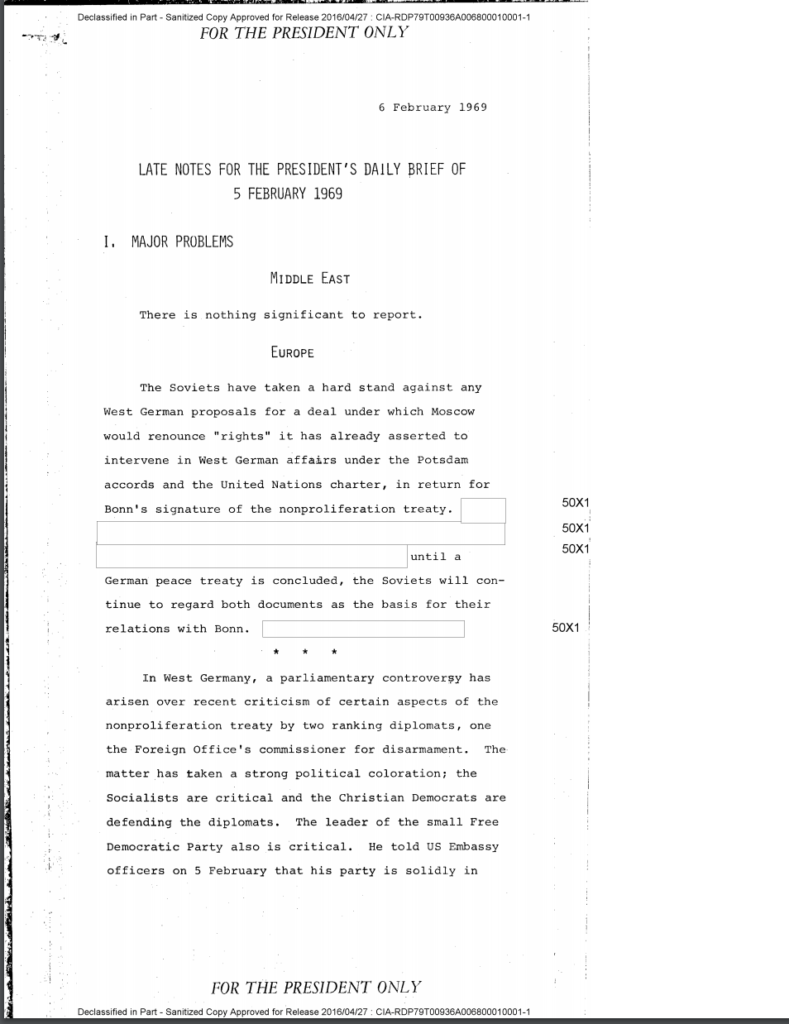The President’s Daily Brief has been described as a newspaper with the smallest circulation in existence. It contains highly classified information tightly held by the U.S. Intelligence Community, and informs some of the most important decisions in the world. For 57 years the President’s Daily Brief (PDB) has helped our commanders in chief make decisions for all Americans. And Donald Trump doesn’t read it.
The PDB was first introduced by President Kennedy in the wake of the Bay of Pigs invasion, when faulty CIA intelligence lead to a humiliating political and military defeat. During the administrations of presidents Johnson through Obama, it has been prepared before dawn, drawing on every U.S. intelligence agency’s information to inform the president.

A screen cap of a PDB from 1969
This changed under Trump. Soon after he took office, it emerged that the president asked for intelligence officials to deliver the briefing verbally in the Oval Office. There is still a written version, which Trump does not read except when Intelligence Officials include his name in every paragraph.
According to a the Washington Post,
Leon Panetta, a former CIA director and defense secretary for President Barack Obama, said Trump could miss important context and nuance if he is relying solely on an oral briefing. The arrangement also increases pressure on the president’s national security team, which cannot entirely replace a well-informed commander in chief.
In the next few months, Trump will have to confront a diplomatic meeting with North Korean leader Kim Jong Un, the coming crisis of the Iranian Nuclear Deal, a tense trading relationship with our allies, an escalating spat between the United Kingdom and Russia over assassinations conducted on UK soil, and a domestic bombing campaign in Austin, Texas.
“Something will be missed,” Panetta said. “If for some reason his instincts on what should be done are not backed up by the intelligence because he hasn’t taken the time to read that intel, it increases the risk that he will make a mistake.”
When he tackles these issues, Trump is not completely uninformed. However, his information is paltry compared to historical precedent and the issues he faces are historically unprecedented. How can Trump — or anyone for the matter — handle the complex responsibilities of the Oval Office with such cursory information?
Trump is MIA in office
Consistently failing in his role as head of state — whether it’s ignoring victims of natural disasters and domestic terrorism, leaving key federal positions vacant, or disregarding national security threats — Donald Trump is an absent president, exposing us to danger.